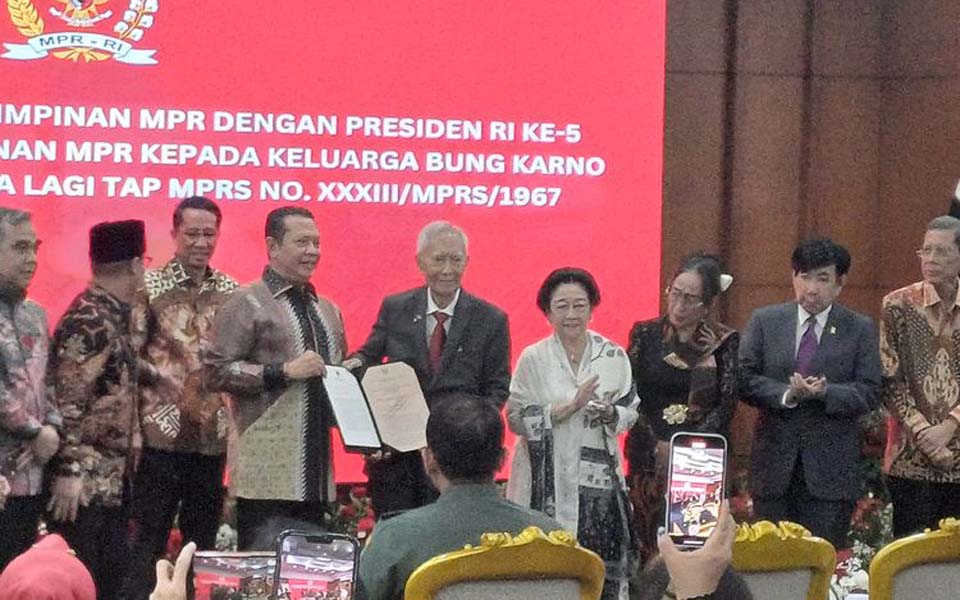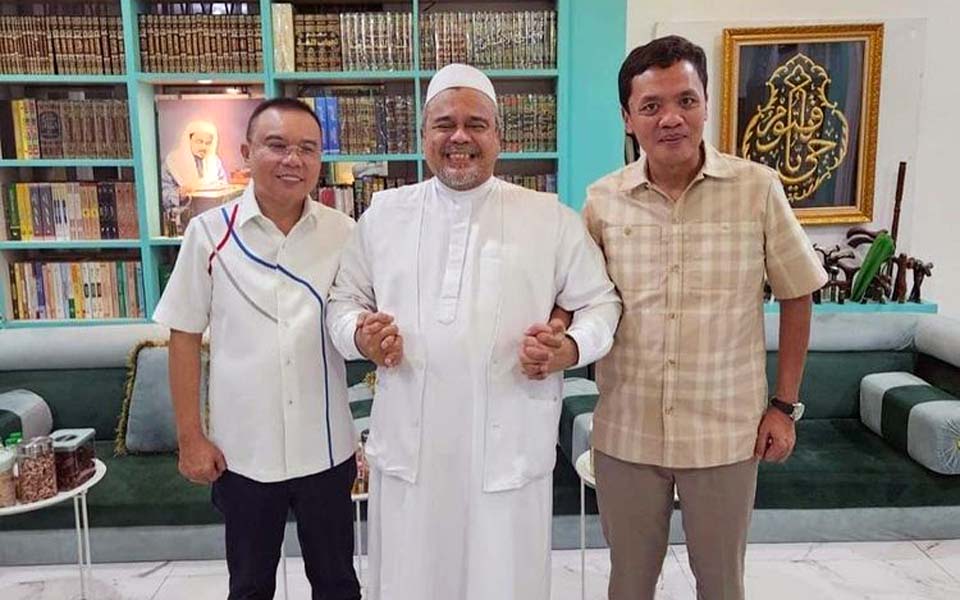Hery H Winarno – Hundreds of people took to the streets to demonstrate in front of the Grahadi building in the East Java provincial capital of Surabaya on the afternoon of Thursday August 13. During the action, the protesters also set fire to red hammer-and-sickle flags.
The action and the burning of the flags were not without cause. The protesters were opposing a plan to revoke the Tap MPRS No XXV/1966 on the dissolution of the Indonesian Communist Party (PKI). The protesters also objected to a plan by President Joko “Jokowi” Widodo to apologies to the PKI.
According to the demonstrators, an apology to individuals or the PKI as an institution is neither procedural or proportional and is ahistorical, especially if it is done by the government.
This is because an apology would result in all legal instruments on prohibitions against the PKI and its teachings that are embodied in the MPRS No XXV/1966, the Supersemar and Law Number 27/1999 on revisions to the Criminal Code related to Article 107(a) on state security, being annulled automatically.
Secondly, a unilateral apology would hurt the feelings of the Islamic community, the TNI (Indonesian military) and the Indonesia people. It would justify the PKI’s position and thus its extermination by the TNI and the Islamic community would be deemed wrong, and they would have to be held accountable before the law.
The other consequence is that [those who adhere to] communist ideas would make further historical demands in terms of moral and material damages as well as seek a revival of their politics.
Fifth [sic], an apology to the PKI could trigger a flare-up in horizontal conflicts and a possible repeat of history with another PKI rebellion and its extermination by the people.
Sixth, the ordinary people would continue to suffer and the PKI would continue to build its strength and power by provoking the poor.
And finally, if the government goes ahead with an apology, provides rehabilitation, compensation and reconciliation to former PKI members, it would mean justifying communism which is clearly in conflict with the philosophical life of the Indonesian nation, namely [the state ideology of] Pancasila, and could give birth to Nasakom Chapter II.
“Because of this, we reject an apology to the PKI, because it would betray the NKRI, so we oppose communists in this country. Let us close ranks. This is all communist propaganda”, shouted action coordinator Santoso in a speech on Thursday August 13.
[Translated by James Balowski for the Indoleft News Service. The original title of the report was “Cerita Jokowi minta maaf ke PKI hingga pembakaran bendera palu arit”.]
Notes
1. Tap MPRS XXV/1966: Provisional People’s Consultative Assembly Decree Number XXV/1966 on the Dissolution of the Indonesian Communist Party and Prohibitions on Marxist, Leninist and Communist Teachings.
2. Supersemar/March 11: According to the New Order dictatorship’s version of history, on March 11, 1966, founding President Sukarno formally transferred power to then Major General Suharto by signing an order known as Supersemar.
3. Nasakom: Sukarno’s concept of the unity of nationalism, communism and religion.
4. NKRI: Negara Kesatuan Republik Indonesia, the Unitary State of the Republic of Indonesia. A term which is often used in the context of nationalism and the desire to maintain the integrity of the Indonesian nation.















